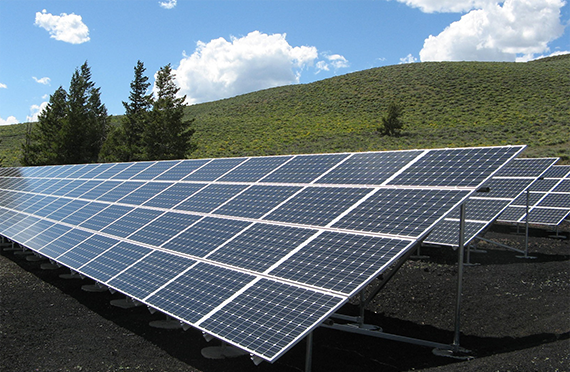Evolution Markets arranges renewable energy transactions on behalf the full range of market participants including, utilities, energy service providers, developers, marketers, traders, and end users. We structure, price, and execute transactions in all U.S. renewable energy products across all traded terms. For more information on REC Markets see our REC 101 market overview.
In addition, our suite of intelligence services keeps our clients best positioned to navigate the fragmented and ever shifting landscape of U.S. renewable energy markets by providing customer specific advisory including but not limited to: portfolio management and hedging strategies, proprietary price information and market fundamentals, revenue valuations for development properties, entity specific strategic advice, and ongoing coverage and analysis of the renewable energy policy.
To learn more about renewable energy markets contact our team in New York: +1 (914) 323 0257 or recdesk@evomarkets.com.


The PJM ISO is a regional transmission organization that coordinates the movement of wholesale electricity in all or part of 13 states including New Jersey, Pennsylvania, Maryland, Delaware, Virginia, Ohio, Illinois, Indiana, Kentucky, Michigan, North Carolina, Tennessee, Virginia, West Virginia and the District of Columbia.
Within that power trading region, many states have their own renewable portfolio standard (RPS) composed of escalating demand obligations and varying facility eligibility requirements. In addition to the meaningful overlaps between state programs, the PJM REC market also has multiple “tiers” of standards, and many REC products. PJM RECs are tracked and transferred in the PJM GATs system. Compliance obligations are enforced through penalties levied for non-compliance (ACPs).

The U.S. voluntary renewable energy market is driven by companies, government agencies, and private consumers who choose to procure renewable energy products outside of any government mandated requirements.
Buyers can purchase bundled renewable energy, or they can meet their commitments by buying unbundled renewable energy (RECs). Most voluntary market purchases are unbundled RECs, and rely on certification programs that verify that the RECs were generated by an eligible facility and that the chain of REC custody is fully audited. Demand for these products is driven by environmental marketing value.
Voluntary buyers are generally interested in not only the resource type, but also when and where the REC was generated. Renewable energy project developers with projects outside of the eligibility criteria of a state RPS program may find an opportunity to generate additional revenue through the sale of bundled Green Power or RECs into the voluntary market.



NEPOOL is a regional power pool within which wholesale electricity market transactions occur for Massachusetts, Connecticut, Rhode Island, New Hampshire, and Maine. Each of these states has their own RPS program composed of procurement obligations for load servers and eligibility criteria governing the eligible supply set.
Of the various tiers within the renewable portfolio standards, the highest value RECs are usually Class 1 products, which consist of wind, landfill gas, low emissions biomass, run of river hydro, and various other fuel types. NEPOOL RECs are tracked and transferred in the NEPOOL GIS system. Compliance obligations are enforced through penalties levied for non-compliance (ACPs).

Many states have implemented solar carve outs, which require load serving entities to procure Solar Renewable Energy Credits (SRECs) from facilities located in their state. Like all other REC markets, each carve out has an ACP schedule, requiring compliance buyers to pay that price in the event that sufficient SRECs are not available to meet their obligation.
Solar programs contain eligibility requirements that developers must meet to obtain qualification for their solar asset. Credits can be banked for future use from two to five years depending on the location of the project. The most active solar carve out markets are New Jersey, Massachusetts (Carve Out I & II), Maryland, and Pennsylvania.



The Western Electricity Coordinating Council (WECC) region is composed of 11 states, of which, eight (AZ, CA, CO, MT, NM, NV, OR, & WA) are currently subject to RPS. Each state RPS requires load serving entities to procure an increasing amount of eligible renewable energy over time.
Obligated load servers comply through the procurement of a wide range of REC products across a varied set of eligibility requirements. While this variation across individual state programs largely defines this fragmented regional marketplace, each of the state programs require RECs be tracked and transferred in the WREGIS system. In addition, each program enforces compliance with penalties (ACPs) levied for non-compliance.